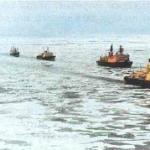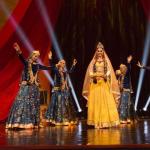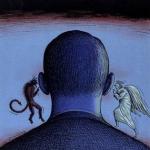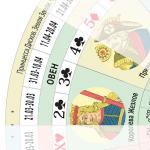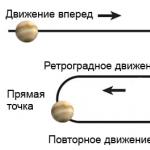What is patriotism essay war and peace. False and true patriotism in Tolstoy's novel war and peace - essay. Patriotism of the people in the work
True patriotism is also inextricably linked with a sense of responsibility, with the ability to be responsible for actions taken in the name of the fate of the people and the country. The true patriots in the work are the Russian people. The episode with the offensive of the French in Smolensk is indicative. The merchant Ferapontov set fire to his own shop, lost his flour, which he was going to profitably sell: “I decided! Russia! ... I'll set it on fire myself. However, he is only one of many residents of the city who also decided to destroy their property. So, Smolensk was burned by the townspeople, so as not to leave the French easy prey. Russian soldiers are also true patriots. We see a manifestation of real patriotism in the scenes depicting the battles of Shengraben, Austerlitz, and Borodino. When heroes face the enemy on the battlefield, the willingness to sacrifice own life, love for the Motherland is manifested most clearly.
Describing the preparation of soldiers for the Battle of Borodino, Tolstoy draws attention to their seriousness and concentration. Captain Timokhin tells Bolkonsky: “The soldiers in my battalion did not drink vodka: it’s not such a day, they say.” Nobody wants to get drunk before an important battle, because by doing so you can let down the Motherland. The soldiers are ready to die, but not to retreat: “The militia… put on clean, white shirts to prepare for death. What heroism, count! Another striking example of the manifestation of true patriotism is the image of General Tushin: he takes the lead during the Battle of Shengraben. The hero is ready to answer for the fact that he disobeyed the order and acted in his own way: he set fire to the village of Shengraben, thereby saving the lives of other soldiers. Thus, the prose writer showed true patriotism in the novel.
The writer contrasts real patriotism with a false one, which is based on selfishness and hypocrisy. An example of this is the image of Dolokhov. In the first battle, when Kutuzov decides to send Bagration with an army through the rugged mountains, Fedor does his job well, but he is driven not by a sense of patriotism and duty to the Motherland, but by the desire to become famous. After the battle, he actively focuses on his positive deeds that he did during the battle:

He pretends to be a patriot in order to be in an advantageous position in the eyes of his superiors. We also see the manifestation of false patriotism among the St. Petersburg aristocracy, who hired teachers of the Russian language and refused to travel to french theater to demonstrate "love" for the Fatherland and belonging to the Russian people. Thus, Tolstoy portrays false patriotism in the novel.
Thus, with the help of a system of images, the writer reveals one of the important themes of his work - the theme of true and false patriotism. The author considers Russian soldiers and ordinary people true patriots because they are ready to sacrifice anything for the sake of the motherland. False patriots, according to Leo Tolstoy, are the majority of representatives of the highest noble society. They do everything for their own comfort and safety while their Fatherland needs protection.
The novel "War and Peace" is a great work of Russian and world literature, a grandiose epic, the hero of which is the Russian people, who showed unprecedented heroism and patriotism in the struggle for the freedom and independence of their homeland in the war of 1812.
The huge life material of this novel is united by a single idea, "I tried to write the history of the people," says Tolstoy. people, by Tolstoy's opinion, are not only peasants, but also nobles, those people who are worried about the fate of the country, who are in the whirlpool of great events. A colossal wave of anger rose among the people after the French attack. All Russian people, with the exception of a small handful of court aristocrats, could not imagine how they could live under the rule of the French. Every Russian acted as he found it possible for himself. Who attacked the active army, who went to partisan detachments. People like Pierre Bezukhov gave part of their money to equip the militias. Many, like the Smolensk merchant Ferapontov, burned shops and their property so that nothing was left for the enemies. And many simply gathered and left their native places, destroying everything after themselves.
Tolstoy notes in the Russian people a simple, sometimes incomprehensible feeling of patriotism, which was expressed not in loud phrases about love for the fatherland, but in decisive actions. Residents of Moscow left the ancient capital without any call. Tolstoy emphasizes that for Muscovites there could be no question of what would be good or bad under French rule in Moscow. It was simply impossible to live like this, as it was the worst of all.
The same thing happens in other cities and villages of the Russian land. On the territory where the enemy had already entered, he saw the hatred and genuine indignation of the people. The peasants refused to sell food and hay to the French. A partisan movement sprang up spontaneously, without any order from above. According to Tolstoy's figurative expression, "the partisans picked up fallen leaves that fell from the common tree of the French army, and sometimes shook this tree."
Not only the common people, but also the advanced layers of the nobility and intelligentsia were imbued with bitterness towards the enemy. No wonder Prince Andrei says that they smashed his house, and now they are going to ruin Moscow, insulting it every second ”And therefore, according to his concepts, they are not only enemies, but also criminals. Prince Andrei honestly fulfills his duty by joining the army at the very beginning of the war, although before that he had decided that he would never be a military man again. He did not stay at the headquarters, as he was offered, but goes to the forefront of events. The heroism and genuine love of Russians for their homeland was especially clearly manifested in the battle of Borodino. On the eve of the battles, Andrei Bolkonsky says: “The battle will be won by the one who firmly decided to win it ... and who will fight harder ... Tomorrow, no matter what, we will win the battle.”
Defending their home, their family, their homeland, the right to life, the Russian people showed amazing fortitude and self-sacrifice, showed miracles of courage. They aroused surprise in Napoleon, who had been invincible so far, and then fear. It is impossible not to be proud of the Russian people. And there is no doubt that such a people has a great future.
Patriotism, according to L. N. Tolstoy, is not loud words, no noisy activity and fussiness, but a simple and natural feeling of "the need for sacrifice and compassion in the consciousness of a common misfortune." This feeling is common to Natasha and Pierre, it possessed Petya Rostov when he rejoiced that he was in Moscow, where there would soon be a battle; the same feeling attracted the crowd to the house of Count Rostopchin, who had deceived her, because people from the crowd wanted to fight Napoleon. At the heart of all these actions, for all their differences, there was one feeling - patriotism.
No one forced the Muscovites to leave, on the contrary, Count Rostopchin persuaded them to stay and called those who left the city cowards. But they went, “because for the Russian people there could be no question: will it be good or bad under the control of the French in Moscow? It was impossible to be under the French: it was the worst of all ... "
As it turned out, the author writes, under tragic circumstances, people still turn out to be better than one might think: “I will not submit to Napoleon,” said those from whom no one expected such behavior. And when Napoleon on September 2, 1812 stood on Poklonnaya Hill, waiting for the deputation of the boyars with the keys to Moscow, he could not imagine that it was empty.
No, my Moscow did not go To him with a guilty head. Not a holiday, not an accepting gift, She was preparing a fire for an impatient hero... —
so wrote A. S. Pushkin.
On the way to the Borodino field, where the decisive battle was being prepared, Pierre Bezukhov saw and heard a lot. The words were simple and understandable, they were spoken by the militia: “They want to pile on all the people ...”
Tolstoy believes that patriotism is a natural feeling of people living the life of their people. Therefore, he refuses it to Berg, Kuragin, Rostopchin.
Natasha cannot and does not want to understand a mother who “at such a moment” thinks about her property and forbids unloading the carts on which she wants to take “the remaining good” out of Moscow. The daughter thinks of the wounded, who cannot be left to the French. It was "wild and unnatural" to think of oneself. “The countess understood this and was ashamed,” writes Tolstoy.
The description of the Battle of Borodino, which occupies twenty chapters of the third volume of the novel, is the center of the work, a decisive moment in the life of the whole country and many heroes of the book. Here all paths will cross, here each character will be revealed in a new way, and here an enormous force will appear: the people, “men in white shirts” – the force that won the war. On the faces of the people that Pierre saw, there was "an expression of awareness of the solemnity of the coming minute", there was "a hidden warmth of patriotism ... which explained why these people were calmly and as if thoughtlessly preparing for death."
What determined this victory? Tolstoy believes: not command orders, not plans, but many simple, natural actions of individuals: the fact that the peasants Karp and Vlas did not bring hay to Moscow for good money, but burned it, that the partisans destroyed Napoleon's great army in parts, What partisan detachments"There were hundreds of different sizes and characters..."
Tolstoy quite accurately understood the meaning of that feeling under the influence of which the guerrilla war began: the patriotism of the people. Growing out of this feeling "club people's war rose with all its formidable and majestic strength and, not understanding anything, rose, fell and nailed the French until the whole invasion died. Is this not a great feeling of patriotism shown by the people in the Patriotic War of 1812?
L. N. Tolstoy opened to readers so many springs of human behavior, in particular patriotism, which today is simply not talked about or spoken about shamefully. But this is a proud feeling that allows a person to feel his involvement in time, events, life, to determine his position in it. material from the site
It would seem that what is common between the time, about which L. N. Tolstoy wrote, and ours, between the war of 1812 and 1941? In 1812 there were no bombs, no planes, there were no horrors and atrocities of Majdanek, Buchenwald, Mauthausen - death camps. But why, then, in the dugouts and hospitals of the forty-first, with blockade oil lamps, people read "War and Peace" as the most "today's" book for them, why was Lermontov's "Borodino" the favorite poem - from the first grader to the general for the long four years of the war?
LN Tolstoy also wrote about us, because he knew something about a person that was enough for more than a hundred years. And when the Great Patriotic War, it turned out that Tolstoy said something very important about each person, and people rushed to him. We still have to draw and draw from the inexhaustible source of his book mental strength, resilience and that complex feeling called patriotism.
Didn't find what you were looking for? Use the search
On this page, material on the topics:
- hidden warmth of patriotism l thick
- tolstoy war and peace about love for the motherland
- short answer patriotism in the understanding of Tolstoy
- Leo Tolstoy definition of patriotism
- Patriotism in the understanding of Tolstoy in the novel War and Peace
The novel "War and Peace" is a historical epic of the valor and courage of the Russian people - the winner in the war of 1812. As in Sevastopol Tales, so in this novel Tolstoy realistically depicts war in "blood, in suffering, in death." Tolstoy tells us about the severity of the war, about its horrors, grief (population leaving Smolensk and Moscow, famine), of death (Andrey Bolkonsky dies after being wounded, Petya Rostov dies). War demands from everyone the utmost exertion of moral and physical strength. During the Patriotic War, during the period of robbery, violence and atrocities committed by the invaders, Russia bears huge material sacrifices. This is the burning and devastation of cities.
Of great importance in the course of military events is the general mood of soldiers, partisans and other defenders of the Motherland. War 1805-1807 was conducted outside of Russia and was alien to the Russian people. When the French invaded the territory of Russia, the entire Russian people, young and old, rose to defend their Fatherland.
In the novel "War and Peace" Tolstoy divides people according to moral principles, especially highlighting the attitude towards patriotic duty. The writer depicts true patriotism and false patriotism, which cannot even be called patriotism. Real patriotism - this is, first of all, patriotism of duty, an act in the name of the Fatherland, the ability, at a decisive moment for the Motherland, to rise above the personal, to be imbued with a sense of responsibility for the fate of the people. According to Tolstoy, The Russian people are deeply patriotic. When the French occupied Smolensk, the peasants burned hay so as not to sell it to their enemies. Each in his own way tried to hurt the enemy so that they felt the hatred of the true owners of the earth. The merchant Ferapontov burned down his own shop so that the French would not get it. True patriots are shown by the inhabitants of Moscow, who, leaving hometown, leave their homes, as they consider it impossible to remain under the rule of impostors.

Russian soldiers are real patriots. The novel is full of numerous episodes depicting the various manifestations of patriotism by Russian people. We see the true patriotism and heroism of the people in the image classic scenes under Shengraben, Austerlitz, Smolensk, Borodin. Of course, love for the fatherland, the readiness to sacrifice one's life for it, is most clearly manifested on the battlefield, in direct confrontation with the enemy. It was in the Battle of Borodino that the extraordinary stamina and courage of the Russian soldiers manifested itself with particular emphasis. Describing the night before the Battle of Borodino, Tolstoy draws attention to the seriousness and concentration of the soldiers who clean their weapons in preparation for battle. They refuse vodka because they are ready to consciously enter the battle with a powerful enemy. Their feeling of love for the motherland does not allow reckless drunken courage. Realizing that this battle may be the last for each of them, the soldiers put on clean shirts, preparing for death, but not for retreat. Courageously fighting the enemy, Russian soldiers do not try to look like heroes. Drawing and posture are alien to them, there is nothing ostentatious in their simple and sincere love for the Motherland. When, during the Battle of Borodino, “one cannonball blew up the ground a stone’s throw from Pierre,” the broad, red-faced soldier ingenuously confesses his fear to him. “After all, she will not have mercy. She slams, so the guts out. It is impossible not to be afraid,” he said laughing. But the soldier, who did not at all try to be brave, died shortly after this short dialogue, like tens of thousands of others, but did not give up and did not retreat.
Outwardly unremarkable people become heroes and true patriots for Tolstoy. Such is the captain Tushin, who found himself in the face of the authorities in a comical position without boots, embarrassed, stumbling and at the same time doing exactly what was needed at the most critical moment.
Force folk spirit give birth to outstanding generals. Such as Mikhail Kutuzov . Kutuzov in the novel is the spokesman for the idea of patriotism, he was appointed commander against the will of the king and the royal court. Andrei explains this to Pierre this way: “While Russia was healthy, Barclay de Tolly was good ... When Russia is sick, she needs her own person.” Kutuzov lives only by feelings, thoughts, interests of soldiers, perfectly understands their mood, takes care of them like a father. He firmly believes that the outcome of the battle is determined by “an elusive force called the spirit of the army” and strives with all his might to maintain this hidden warmth of patriotism in the army.
The episode in Fili is important. Kutuzov takes on the gravest responsibility and orders to retreat. This order contains the true patriotism of Kutuzov. Retreating from Moscow, Kutuzov saved the army, which so far could not be compared in size with Napoleon's. Defending Moscow would mean losing the army, and this would lead to the loss of both Moscow and Russia. After Napoleon forced out of the Russian borders, Kutuzov refuses to fight outside of Russia. He believes that the Russian people have fulfilled their mission by driving out the invader, and there is no need to spill more people's blood.
The patriotism of the Russian people is manifested not only in battle. After all, not only that part of the people who were mobilized into the army participated in the fight against the invaders.

Andrei Bolkonsky. Frame from the film "War and Peace" (1965)
Lev Nikolaevich shows that patriotic feelings embrace people of different political views: advanced intelligentsia (Pierre, Andrey), the old Prince Bolkonsky, the conservative-minded Nikolai Rostov, the meek Princess Marya. A patriotic impulse also penetrates the hearts of people who seem to be far from the war - Petya, Natasha Rostovs. But it only seemed to be. A real person, according to Tolstoy, cannot but be a patriot of his Fatherland. All these people are united by a feeling that is in the soul of every Russian person. (The Rostov family, leaving the city, gives all the carts to the wounded, thereby losing their property. After the death of her father, Maria Bolkonskaya leaves the estate, not wanting to live in the territory occupied by enemies. Pierre Bezukhov thinks to kill Napoleon, knowing full well how this could end.)
The writer attaches great importance partisan movement . Here is how Tolstoy describes his spontaneous growth: Before the guerrilla war was officially accepted by our government, already thousands of people of the enemy army - backward marauders, foragers - were exterminated by the Cossacks and peasants, who beat these people as unconsciously as dogs unconsciously bite a mad dog.. Tolstoy characterizes the guerrilla “war against the rules” as spontaneous, comparing it with a club, “ rising with all its formidable and majestic strength and, without asking anyone's tastes and rules ... nailed the French ... until the whole invasion died ”.
To the true patriotism of the bulk of the Russian people, Tolstoy opposes the false patriotism of the highest noble society, repulsive with its falsehood, selfishness and hypocrisy. These are false people, whose patriotic words and deeds become a means to achieve base goals. Ruthlessly Tolstoy rips off the mask of patriotism from the German and semi-German generals in the Russian service, "golden youth" like Anatoly Kuragin, careerists like Boris Drubetskoy. Tolstoy angrily denounces that part of the senior staff officers who did not take part in the battles, but tried to get settled at the headquarters and simply receive awards.
People like false patriots there will be a lot until people realize that everyone must defend their country, and that there will be no one else to do this except them. This is what Leo Tolstoy wanted to convey through antithesis, opposition of true and false patriots. But Tolstoy does not fall into a falsely patriotic tone of narration, but looks at events sternly and objectively, like a realist writer. This helps him more accurately convey to us the importance of the problem of false patriotism.
A false patriotic atmosphere reigns in the salon of Anna Pavlovna Scherer, Helen Bezukhova and in other Petersburg salons:“...calm, luxurious, preoccupied only with ghosts, reflections of life, Petersburg life went on in the old way; and because of the course of this life, great efforts had to be made to realize the danger and the difficult situation in which the Russian people found themselves. There were the same exits, balls, the same French theater, the same interests of the courts, the same interests of service and intrigue. Only in the most higher circles efforts have been made to recall the difficulty of the present situation. Indeed, this circle of people was far from understanding the all-Russian problems, from understanding the great misfortune and the need of the people in this war. The world continued to live by its own interests, and even in a moment of nationwide disaster reign here greed, nomination, service.
Count also shows false patriotism Rostopchin who sticks stupid things around Moscow "posters", urges the inhabitants of the city not to leave the capital, and then, fleeing the people's wrath, deliberately sends the innocent son of the merchant Vereshchagin to death. Meanness and betrayal are combined with conceit, puffiness: “It not only seemed to him that he controlled the external actions of the inhabitants of Moscow, but it seemed to him that he was directing their mood through his appeals and posters, written in the dark language, which in its midst despises the people and which he does not understand when he hears it from above. ».
Indicative for understanding the author's attitude to what is happening is the reaction of the participants in the scene to Berg's behavior - both direct and not having a direct connection with the hero's monologues. The direct reaction lies in the actions of the count: “The count wrinkled his face and suffocated…”; “Oh, get out of here, you all to hell, to hell, to hell and to hell! ..” Natasha Rostova's reaction is even more definite: “... this is such disgusting, such an abomination, such ... I don't know! Are we some kind of Germans?..” Natasha Rostova's exclamation is somewhat divorced from Berg's monologues, it is connected with Petya's story about the parents' quarrel over carts. But it is obvious that Tolstoy puts these words into the mouth of Natasha, including with the aim of giving a final assessment of Berg's hypocritical shamelessness (the mention of the Germans is not accidental).
Such, finally, Drubetskaya who, like other staff officers, thinks about rewards and promotions, wants “arrange for yourself the best position, especially the position of adjutant with an important person, which seemed to him especially tempting in the army”. It is probably no coincidence that on the eve of the Battle of Borodino, Pierre notices this greedy excitement on the faces of the officers, he mentally compares it with "another expression of excitement", "which spoke of not personal, but general issues, issues of life and death."
Tolstoy convinces us that only those nobles who comprehend the spirit of the people, for whom there can be no happiness outside the peace and prosperity of their country, can be true patriots.
By uniting people according to a moral principle, emphasizing the special importance in evaluating a person of the truth of his patriotic feeling, Tolstoy brings together people very different in their social status. They turn out to be close in spirit, rise to the greatness of national patriotism. And it is not for nothing that in a difficult period of life, Pierre Bezukhov, once on the Borodino field, comes to the conclusion that true happiness is merging with the common people. (“Be a soldier, just a soldier. Enter this common life with your whole being.”)
Thus, true patriotism, in the understanding of Tolstoy, is the highest manifestation of the moral strength and spirit of the people. Popular patriotism is an invincible force in the fight against enemies. The winner is the Russian people.
The epic novel "War and Peace" is, first of all, a work that personifies the heroism and courage of the Russian people in the Patriotic War of 1812.Even when the author describes the Battle of Shengraben in 1805, the author focuses on the greatest heroism and courage of ordinary captain Tushin, and ordinary soldiers, entrusted to him, batteries. Despite the heavy fire of the enemy, a simple captain, without a single drop of fear, competently manages the bombardment, which shows an example of heroism and fearlessness to his soldiers. Tushin is the embodiment of wisdom, heroism, courage and simplicity of the Russian people. He is not afraid to die in the name of the freedom of his people, honestly fulfilling his military and human duty to the fatherland.
No less brave and courageous is Tushin's "colleague" - Captain Timokhin. At the most difficult and tense moment, his company, mercilessly attacking the enemy, breaks the entire course of the battle in its direction. Timokhin also accomplished a heroic deed, which deserves the deepest respect and gratitude from his compatriots.
Leo Nikolayevich Tolstoy very much condemns and hates the war, and everything connected with it. According to his deepest conviction, war is a complete contradiction human mind and intellect, the whole human essence, in general. It brings grief, death, the pain of loss, crippled destinies. But at the same time, the Patriotic War of 1812 is a terrible and monstrous necessity. After all, to expel an uninvited enemy from native land, and if necessary, to destroy it - this is the sacred duty of any Russian person, regardless of class.
As for the aristocracy, in its highest circles there was an ambiguous attitude towards the war. Most of the aristocrats, only in words were "true patriots" of their fatherland, but, further pathos and common phrases, things didn't work for them.
But really, the real patriots of their fatherland acted differently. The Rostovs, not afraid of complete ruin, and dooming themselves to deep poverty, give all their carts to the wounded in order to give at least one of them a chance to survive. Himself, Nikolai Rostov, returned to the army, not being afraid to die. Just like that, the still very young Petya is going to fight. Prince Andrei, also looking into the face of death, takes command of the regiment, and Pierre Bezukhov allocates a million for the needs of the militia.
The Russian people had a huge feeling of hatred and anger towards the conquerors at that time. Simple people, dooming themselves to deep poverty, they burned absolutely everything that they could not take with them, so that even the “scary fraction” would not go to the enemy. Even hay, the peasants refused to sell to the enemy. Despite the fact that serious money was offered for it, the peasants burned everything to the ground.
Also, it is impossible not to mention the partisan movement of that time. Vasilisa's detachment destroyed great amount French. And the partisan Tikhon Shcherbaty was never an "upstart", and quietly and confidently did his job: he destroyed the enemy.
A people that loves its homeland, that is ready to give itself without a trace, for its good and freedom, cannot be defeated! This is exactly what the great Russian people are like!

